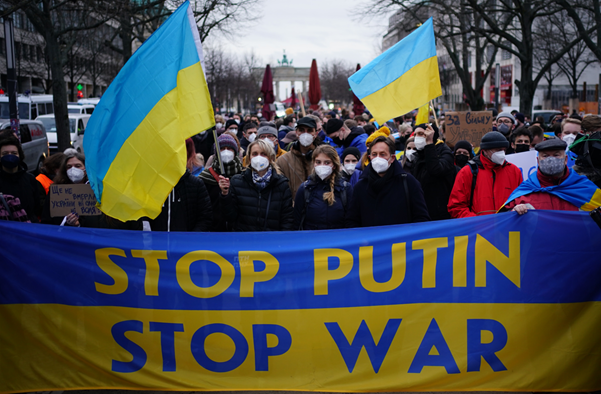Thousands of protesters in cities all around the world have taken to the streets in recent days, urging Russian President Vladimir Putin not to attack Ukraine after he declared an autonomous republic in Ukraine – thus going against all international acts. Putin then actually started the invasion on Thursday, and gatherings of people all around the world in support of Ukraine continue. Slovenia will also show its support for Ukraine with a rally, which has been scheduled for Friday, the 25th of February at 4 p.m., in Ljubljana, in front of the Russian Embassy.
With the recognition of the two separatist regions, Russian President Vladimir Putin started a fire under Ukraine, as he, directly and indirectly, announced the invasion with this, so the start of the war was inevitable. Thousands of protesters gathered at protests around the world in support of Ukraine, who criticised the Russian President for his aggressive stance or called for peace with their signs.
The protesters showed support for Ukraine in front of Russian embassies and elsewhere in major cities around the world, including London, Berlin, Paris, Copenhagen, Tokyo, and Tallin. Similar demonstrations with the slogan “We stand with Ukraine” also took place in other cities around the world, including Stockholm in Sweden, Kathmandu in Nepal, Warsaw in Poland, and several countries in the United States.
In light of recent events and the state of war, and to show support for Ukraine and call for peace, a rally will also be held in Ljubljana, in front of the Russian Embassy, on Friday, the 25th of February, at 4 p.m. The organiser called on people to join with the slogan: “We are all building the present, we are all building the future! Not only the future of Ukraine but the future of the whole world.”
The global show of support for Ukraine began as US President Joe Biden warned the Ukrainian President Volodymyr Zelensky of the imminent attack by Putin’s troops that would happen in the next 48 hours, just hours after Ukraine was hit by a massive cyberattack targeting its government and banks.
Tanja Brkić


